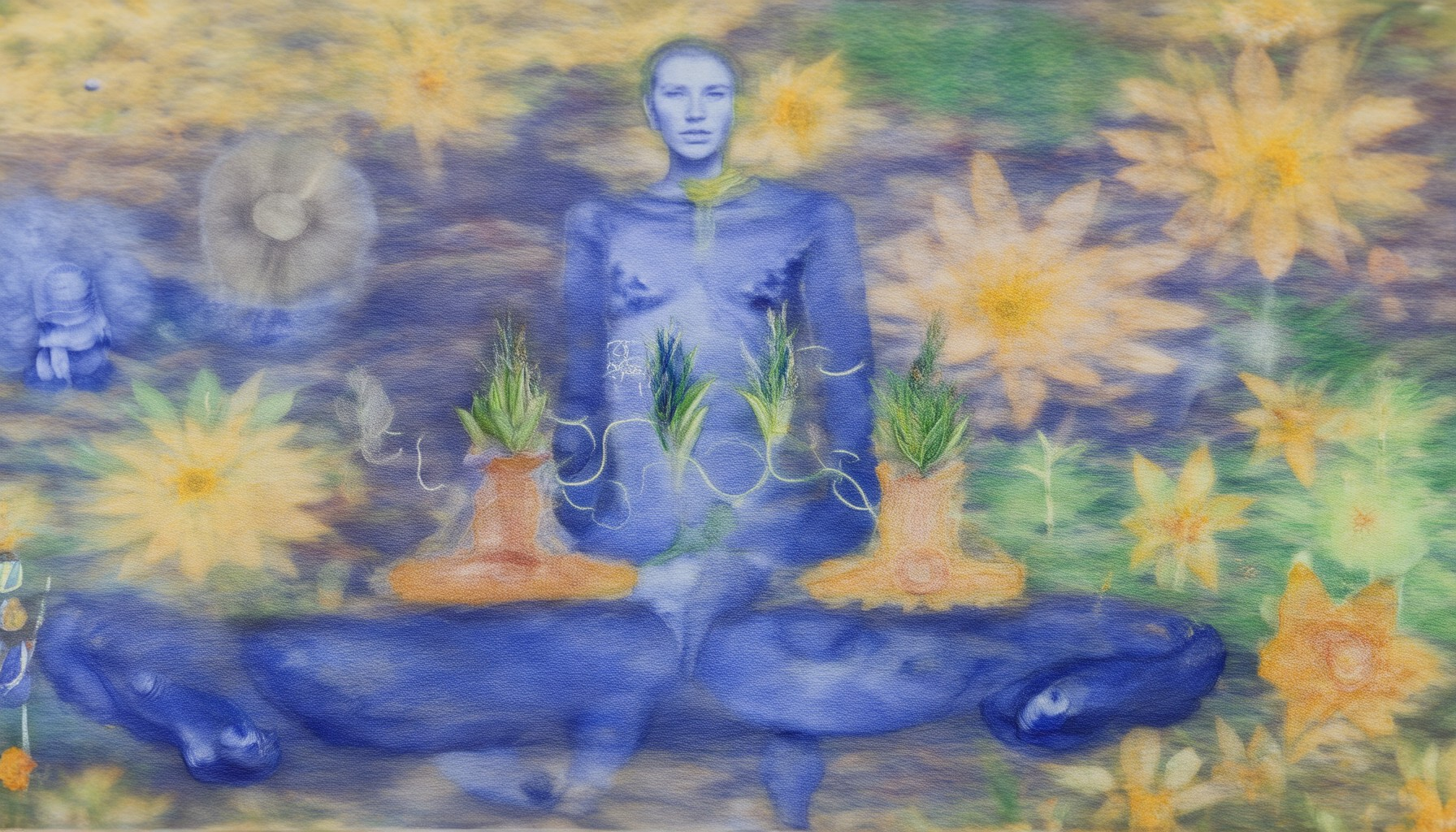Mindfulness has emerged as a powerful tool for fostering personal growth, offering individuals the ability to cultivate self-awareness, reduce stress, and achieve greater balance in their lives. By practicing mindfulness, one can unlock hidden potential, navigate life’s challenges, and embrace a more fulfilling existence. This article delves into the essence of mindfulness, exploring its transformative impact on personal development, and provides actionable tips to integrate mindfulness into daily routines. From understanding its core principles to discovering how it can enhance self-awareness and resilience, this comprehensive guide will walk you through the key areas where mindfulness excels, ensuring you gain valuable insights for thriving personally and professionally. Whether you’re seeking to improve productivity, build stronger relationships, or simply find peace within, mindfulness offers a pathway to growth and self-discovery.
Key Takeaways
- Cultivate Self-Awareness: Understand your strengths, weaknesses, and values through mindfulness and regular reflection.
- Set SMART Goals: Establish clear, achievable objectives aligned with your personal values and vision.
- Enhance Emotional Intelligence: Develop skills to manage emotions and communicate effectively, fostering deeper connections.
- Build Strong Relationships: Focus on trust, open communication, and empathy to create a supportive network.
- Adopt a Growth Mindset: Embrace challenges and view failures as opportunities for growth and learning.
- Pursue Lifelong Learning: Continuously explore new knowledge and skills to stay curious and adaptable.
- Prioritize Health: Maintain physical and mental well-being through regular exercise, nutritious eating, and quality sleep.
- Surround Yourself with Support: Build a network of positive influences and mentors to inspire and motivate your journey.
- Practice Gratitude and Positivity: Shift your perspective daily through practices like journaling to foster a positive outlook.
- Align Actions with Purpose: Live authentically and contribute meaningfully to your life and the world around you.
What are the 5 R’s of mindfulness?
- Recognize: Begin by noticing your present thoughts, emotions, and surroundings. This awareness is the foundation of mindfulness.
- Relabel: Reframe negative or distressing thoughts into more balanced perspectives. For example, turning “I’m anxious” into “I feel calm.”
- Respond: Actively engage with your experiences rather than reacting impulsively. Choose a mindful response instead of automatic behaviors.
- Rebalance: Regularly pause to reset your mindset, focusing on relaxation and centering yourself during moments of stress.
- Return: Bring your attention back to the present moment whenever you notice it has wandered off. This helps maintain focus and presence.
How Can Mindfulness Help with Personal Growth?
Mindfulness offers numerous benefits that contribute to personal growth, fostering a sense of balance and fulfillment. By cultivating awareness and intentionality, mindfulness enables individuals to navigate life’s challenges and opportunities with greater ease and purpose.
1. Enhancing Emotional Resilience
Mindfulness practices, such as meditation and breathing exercises, help individuals manage stress and anxiety. By observing emotions without judgment, mindfulness fosters emotional resilience, allowing people to bounce back from setbacks and approach challenges with a clearer mindset.
2. Deepening Self-Awareness
Self-awareness is a cornerstone of personal growth. Mindfulness encourages introspection, helping individuals understand their thoughts, feelings, and behaviors. This awareness allows for better decision-making and aligning actions with personal values and goals.
3. Improving Relationships
Mindfulness enhances empathy and compassion, which are crucial for building and maintaining strong relationships. By focusing on the present moment, individuals can communicate more effectively and respond thoughtfully to others’ needs and emotions.
4. Finding Purpose and Meaning
Mindfulness helps individuals connect with their true selves, often revealing a sense of purpose. This clarity can guide decisions and activities, leading to a more fulfilling and meaningful life. By living in alignment with personal values, people often experience greater satisfaction and a sense of accomplishment.
5. Boosting Productivity
Practicing mindfulness can improve concentration and focus, leading to increased productivity. By reducing mental clutter and stress, mindfulness creates a conducive environment for achieving long-term goals and staying motivated.
Chris and One offers valuable resources to support your mindfulness journey and personal growth. Explore our guided meditations, articles, and tools designed to help you thrive. Visit Chris and One today to discover how mindfulness can transform your life.
What Are the 3 C’s of Mindfulness?
The three core components of mindfulness are:
- Connection: Mindfulness fosters a deeper connection with oneself and the present moment, allowing for greater self-awareness and engagement in daily activities.
- Compassion: By cultivating awareness, mindfulness enhances empathy and compassion, leading to kinder interactions with oneself and others.
- Calmness: Regular mindfulness practices reduce stress and promote inner peace, contributing to overall mental and emotional well-being.
This framework emphasizes the holistic benefits of mindfulness, encompassing mental, emotional, and social aspects of life.
What Are the 5 Areas of Personal Growth?
Personal growth encompasses various dimensions of self-improvement that contribute to overall well-being and life satisfaction. Here are five key areas:
- Self-Awareness : Understanding oneself, including strengths, weaknesses, values, and emotions. Practices like mindfulness, journaling, and reflection help cultivate self-awareness.
- Goal Setting : Establishing clear, achievable objectives aligned with personal values. Using SMART goals (Specific, Measurable, Achievable, Relevant, Time-bound) is an effective strategy.
- Emotional Intelligence : Developing skills to manage emotions, communicate effectively, and empathize with others. This includes recognizing emotional cues and responding thoughtfully.
- Relationship Building : Fostering healthy, supportive connections with family, friends, and colleagues. Effective communication and active listening are key components.
- Continuous Learning : Pursuing knowledge and skills through education, reading, and exploration. Lifelong learning helps adapt to changing environments and grow intellectually.
By focusing on these areas, individuals can create a balanced and fulfilling life that promotes personal and professional growth. Chris and One offers resources and tools to help navigate these areas effectively, providing actionable insights and inspiration for meaningful change.
What Are the 7 Essential Pillars of Personal Development?
The journey of personal development is a holistic process that encompasses various dimensions of self-growth. Below are the seven essential pillars that form the foundation of effective personal development:
- Mindset and Self-Awareness
- Goal Setting and Vision
- Habit Formation
- Relationship Building
- Health and Wellness
- Lifelong Learning
- Purpose and Fulfillment
Mindset and Self-Awareness
Your mindset is the starting point of personal development. Cultivating a growth mindset, embracing self-awareness, and developing emotional intelligence are crucial for overcoming challenges and achieving your full potential. Regular self-reflection and acknowledging your strengths and weaknesses can lead to significant personal growth.
Goal Setting and Vision
Clear, achievable goals guide your progress. Setting short-term and long-term objectives aligned with your life’s purpose helps you stay focused and motivated. Visualizing your future and creating a roadmap can provide direction and keep you inspired to pursue your ambitions.
Habit Formation
Developing healthy habits is essential for sustained personal development. Consistent exercise, a balanced diet, and a consistent sleep schedule contribute to physical and mental well-being. Positive routines such as daily meditation or journaling can foster discipline and mindfulness.
Relationship Building
Strong relationships are vital for personal growth. Building trust, communication, and empathy with others fosters a supportive network that encourages you to thrive. Surrounding yourself with positive influences and maintaining healthy boundaries is key to your development.
Health and Wellness
Physical health is the cornerstone of overall well-being. Prioritizing regular check-ups, managing stress, and adopting a healthy lifestyle enhances your ability to perform at your best. A well-nourished body supports a sharp mind and increased productivity.
Lifelong Learning
Continuous learning keeps your mind sharp and opens doors to new opportunities. Whether through formal education, reading books, or exploring new skills, staying curious and adaptable ensures you remain competitive and resilient in a rapidly changing world.
Purpose and Fulfillment
Understanding your purpose and living authentically aligns your actions with your values. Finding meaning and satisfaction in your work and life contributes to a sense of fulfillment, driving you to achieve your best and leave a lasting impact.
By focusing on these seven pillars, you can create a well-rounded approach to personal development that leads to growth, confidence, and a fulfilling life.
Improving Personal Growth: A Comprehensive Guide
Personal growth is a journey that encompasses various aspects of self-improvement, from developing new skills to fostering better habits. Here’s a structured approach to help you on your path:
- Define Your Vision:** Start by envisioning what you want your life to look like in the future. Break this vision into manageable, short-term goals that guide your actions.
- Cultivate a Positive Mindset:** Embrace positivity and practice gratitude. Consider journaling daily thanks to shift your perspective and foster a positive outlook.
- Form Habits Strategically:** Establish routines and find accountability partners to help maintain consistency. Use tools like alarms or apps to remind yourself of tasks.
- Continuous Learning:** Identify areas where you desire growth and commit to lifelong learning. Choose subjects that challenge you and align with your aspirations.
- Become a Lifelong Learner:** Engage in ongoing education and self-discovery. Attend workshops, join online communities, and seek mentorship to stay motivated and inspired.
- Surround Yourself with Support:** Build a network of supportive friends and mentors. Consider joining groups or attending events that align with your goals for added encouragement.
- Prioritize Health:** Understand that physical and mental well-being are intertwined. Dedicate time to exercise, eat nutritiously, and ensure adequate sleep to support your growth journey.
- Learn from Failure:** Reframe setbacks as opportunities to learn and grow. Approach challenges with resilience and view failures as stepping stones to success.
- Set Boundaries:** Protect your time and energy by saying no to distractions that don’t align with your objectives. Assertively manage your priorities to maintain focus.
- Practice Self-Compassion:** Be kind to yourself during your journey. Acknowledge that growth is nonlinear and celebrate every small achievement as a milestone.
By integrating these strategies, you can create a holistic approach to personal growth that fosters self-awareness, confidence, and overall well-being. Remember, growth is a continuous process that requires patience, persistence, and adaptability.









0 Comments